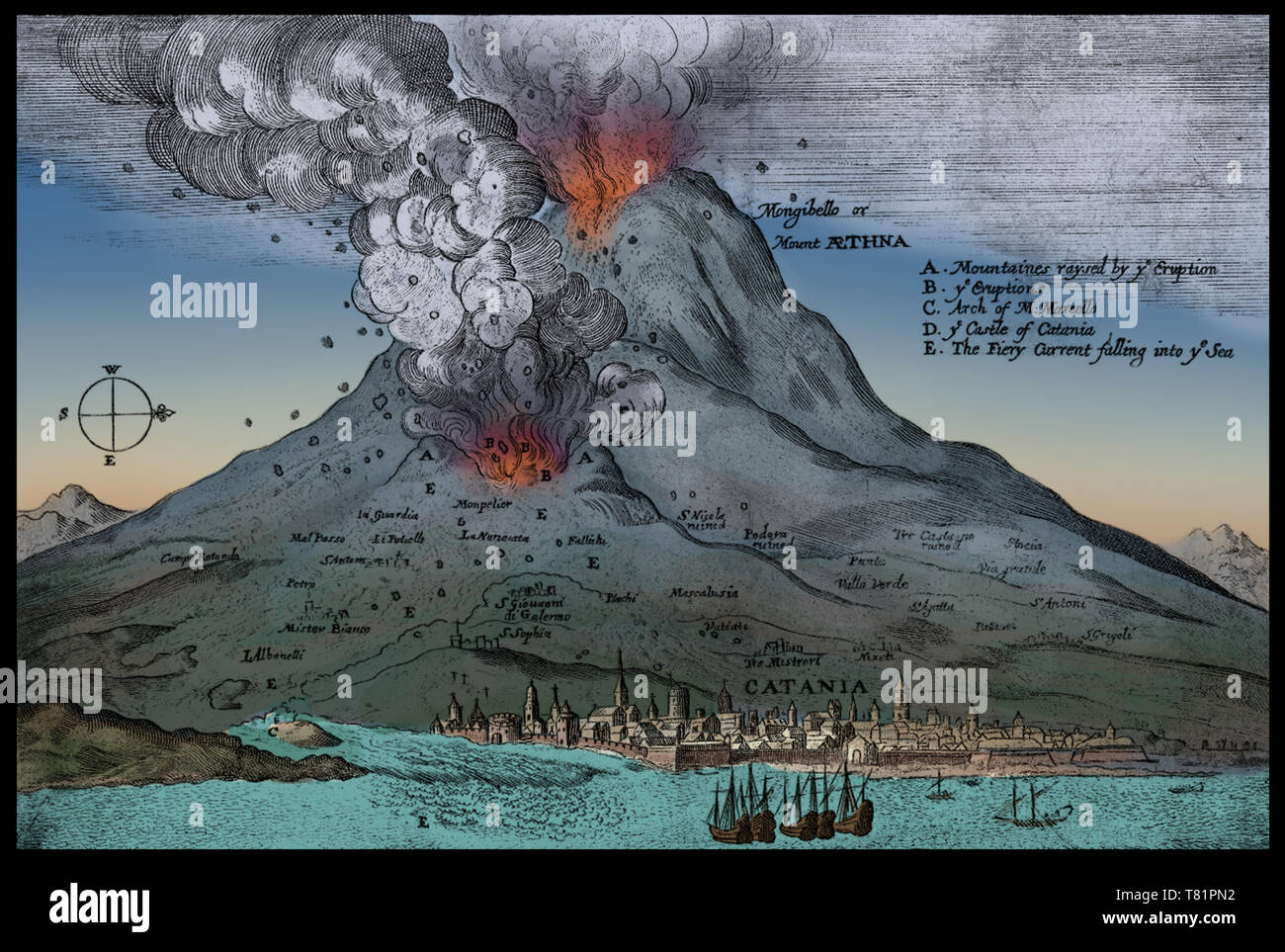Mount Etna Eruption, 1669

Image details
Contributor:
Science History Images / Alamy Stock PhotoImage ID:
T81PN2File size:
38.9 MB (1.7 MB Compressed download)Releases:
Model - no | Property - noDo I need a release?Dimensions:
4500 x 3025 px | 38.1 x 25.6 cm | 15 x 10.1 inches | 300dpiDate taken:
1 December 2017Photographer:
Science History ImagesMore information:
This image could have imperfections as it’s either historical or reportage.
Entitled: "A true and exact relation of the late prodigious earthquake and eruption of Mount Etna; as it came in a letter written to His Majesty from Naples by the Right Honorable the Earle of Winchilsea, His Majesties late ambassador at Constantinople, who was an eye-witness of that dreadfull spectacle. 1669." Mount Etna is an active stratovolcano on the east coast of Sicily, Italy. Etna's most destructive eruption since 122 BC started on March 11, 1669 and produced lava flows that destroyed at least 10 villages on its southern flank before reaching the city walls of the town of Catania five weeks later. The lava was largely diverted by these walls into the sea to the south of the city, filling the harbor of Catania. Contrary to widespread reports of up to 15, 000-20, 000 human fatalities caused by the lava, contemporaneous accounts written both in Italian and English mention no deaths related to the 1669 eruption, but give very precise figures of the number of buildings destroyed, the area of cultivated land lost, and the economic damage. Therefore, it is uncertain where the enormous number of fatalities can be attributed.